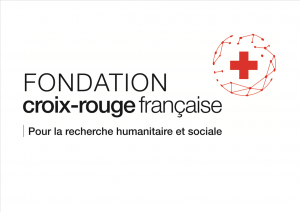Fellowships funded by Axa Research Fund
The French Red Cross Foundation has decided to join forces with the AXA Research Fund to launch a call for applications for two postdoctoral fellowships on the theme of sanitary and climatic risk management in developing countries. The AXA Research Fund supports scientists and institutions of excellence whose research is linked to the environment, health, new technologies and socio-economic risk. Applications can focus on one of the three following research themes.
Research Themes
> Access to Healthcare
Although international law has clearly defined the right to equal access to health care for all, there are still 400 million people in the world who do not have access to essential care, according to the United Nations. Giving the means to live a healthy life and promoting the wellbeing of people of all ages therefore remains one of the main objectives of sustainable development, with health being a priority sector for intervention for many NGOs.
There has been undeniable progress over the last few years in terms of life expectancy and infant and maternal mortality, namely thanks to “Universal Health Care” systems put in place in certain countries (Ghana, Rwanda, Mali, Kenya, Nigeria…). The worldwide rate of maternal mortality has fallen by 37% since 2000, and by two-thirds in East Asia, South Asia and North Africa. The proportion of women receiving prenatal care has also been increasing in developing regions, from 65% in 1990 to 83% in 2012.
Yet this improvement remains very unevenly distributed and is operating at too slow a pace, especially in the most economically disadvantaged countries, and there remains a great need for a long-term response to health issues. Whilst the mortality rate of children under five has decreased overall, the proportion of deaths is rising in sub-Saharan Africa and in South Asia. Four out of five deaths amongst children under five occur in these regions. Moreover, the rate of maternal mortality is 14 times higher in developing countries than in developed ones.
In Africa especially, where health systems remain particularly fragile, endemic poverty, natural disasters, bloody conflicts, political instability, and the lack or misuse of human resources have all perpetuated the chronic lack of quality care. Currently one in 16 women on the continent die during childbirth and one child in five does not reach the age of five due to respiratory infections, diarrhoea, malaria or measles.
There are no readymade solutions, applicable to every area and circumstance, to ensure that everyone has access to the healthcare that they need, since the obstacles leading to unequal access to care differ from one country to another, from one region to another, from one community to another: too far a distance to health structures, poverty, insufficient medicine supplies, lack of healthcare personnel, lack of access to information about diseases and their treatments, cultural barriers, lack of operational health infrastructures, etc.
Much remains to be done in order for us to understand and dismantle the mechanisms which have led to this absence of care, the development of medical deserts and the exclusion of health on a massive scale in developing countries. Whether the issues concern primary health care (hygiene, prevention, health education), vulnerable populations (women, street children, refugees), or pandemics (HIV, malaria), which actions and mobilisations might contribute to rendering the right to health more effective and to ensuring the most sustainable access to health care possible? How can we contribute to the medical autonomy of populations whilst respecting their needs and cultural specificities? How can the efficiency of different NGO actions and innovations regarding access to care and medical supervision of vulnerable persons be put to use by different actors from civil society and contribute to the sustainable development of health? How can we encourage this transition in order to lastingly rebuild health systems destroyed by war, or to create systems where there are none, thereby ensuring the autonomy of local health systems?
> Epidemic Risks
Epidemic risks still represent a significant sector for humanitarian intervention: haemorrhagic fever, malaria, arbovirosis, meningitis, influenza, etc. In the absence of vaccinations, determining the factors that influence epidemics in order to better anticipate them is a real public health issue.
Some NGOs, such as MSF, were able to develop real response capacities following the appearance of new pandemics in recent years (cholera in Haiti, meningitis and measles in Niger, Kala-azar in Sudan, etc.). However, with regards the Ebola virus, the Marburg virus disease, or new rapid transmission pandemics accelerated by changes in modes of production (H5N1 avian influenza) or the intensification of population movement enabled by public and air transport systems (H1N1), “most medical NGOs are out of the game”, according to Santé Sud. They show their limitations in the management of sanitary crises which know no borders and rapidly develop into humanitarian and economic crises.
Moreover, different research shows that the distribution of a number of infectious diseases is going to change, especially with regard to those requiring the presence of vectors for transmission, such as dengue fever or chikungunya. Models predict new at-risk territories due to changes in environmental niches, which are becoming favourable to the establishment of infectious cycles. More intense rain, associated with El Niño or monsoons in Asia, and heat waves, will affect the epidemiological environment with the likely consequence of an increase in the variability of epidemic risk for all diseases linked to water, transmitted by vectors, or dependent on wild animals’ reservoirs.
In-depth analysis of the conditions for the emergence and development of epidemics, as well as the study of perceptions and behaviours amongst affected populations, will enable the anticipation and reduction of the impacts of health disasters, and their human and economic damages. To do so, it seems increasingly necessary to argue in favour of a response which combines a community approach with the reinforcement of health systems, namely by including the integration of epidemiological monitoring systems.
That being said, beyond the medical and scientific aspects, the social and anthropological dimension of epidemics is too often neglected, though it requires an appropriate approach in accordance with the cultural context, lest it become an obstacle to the successful conduct of relief operations. The cross-disciplinary nature of these issues is an incentive for experts to pool their knowledge in order to develop adapted responses which can be locally led by community and political leaders. Whilst international attention has focused on the absence of vaccines and treatment, we must not overlook the weaknesses of the health system and the capital importance of strengthening it.
How can we anticipate pandemic risk and prepare for it in countries where the health systems are fragile? How can we help communities to prepare themselves and respond to health emergencies? How can the efficiency of different NGO actions and innovations in terms of epidemic risk anticipation and the treatment of sanitary crises be put to use by different public actors and by civil society, thereby contributing to the reinforcement of local health systems? How can we contribute to the containment of epidemics in accordance with the cultural specificities of local populations? How are awareness campaigns and/or intervention programmes in times of crisis perceived, and what are the main obstacles to their success?
> Climatic Risks and Natural Disasters
Nearly 4000 natural disasters were recorded in the last 10 years, affecting nearly 2 billion people. Climate change and natural hazards have consequences which extend far beyond the environmental impact. In 2015, on the eve of the COP21 in Paris, a report by the World Bank confirmed the link between climate and poverty, with one of its authors stating that “absent such good development, climate change could result in an additional 100 million people living in extreme poverty by 2030”. The continuing rise of temperatures, increasing frequency of extreme natural disasters and pollution are all factors which will undeniably have an impact on the economies of the most vulnerable countries, which are primarily agricultural and therefore highly dependent on the climate. Climate change also exacerbates conflicts over natural resources, pushing populations into forced migration, who then fall into a legal vacuum since there is as yet no status for climate refugees.
This all leads to humanitarian and sanitary crises with specific causes and management methods. The proliferation of these crises will, according to forecasts, require NGOs, states, businesses, and international institutions to manage increasing volumes of operations in the future. This new context will prompt actors of civil society and international institutions to reshape their action with a view to a transition or to closer affiliation to sustainable development objectives, and local public authorities to opt for innovative methods of disaster risk management (new insurance mechanisms, Disaster Risk Reduction) and energy transition. It is therefore important to ask what these environmental upheavals entail, both in terms of their consequences for populations, and in terms of the development and practice of humanitarian aid.
One of the major challenges is better understanding and anticipating the consequences of current aid programmes, and integrating the perceptions of risk and adaptation capacities of local populations. Indeed, it is generally agreed that although the risks associated with natural disasters are due to hazards that are difficult to control, their impact can be limited in several ways, and especially by preparing the populations beforehand. This preparation first involves raising awareness and an effective communication strategy, an essential component of disaster risk reduction programmes in the humanitarian sector. Nevertheless, it is interesting to note that a population that has been made aware of a risk does not always adapt its behaviour as a result.
Identifying and analysing the sociocultural factors which influence prevention and protection behaviours in the face of natural risks (before, during and after) is therefore crucial in order for disaster risk management programmes to be adapted. Integrating specific logics of positioning and adaptation with regard to disasters on behalf of vulnerable populations amongst whom humanitarian aid organisations intervene will enable us to develop more sustainable and efficient actions.
Which actions contribute to reducing vulnerability and improving adaptation to extreme meteorological hazards, with a view to lasting resilience and sustainability? How do individuals perceive the risks to which they are exposed? Which parameters influence this perception? What is the correlation between the perception of risks and the adaptation of behaviours? How can the socio-cultural elements of disaster risk reduction management be integrated in order to increase resilience?
Geographic Research Areas
These themes can be addressed in a geographical area including one or several countries. Together with the AXA Research Fund, the Foundation has identified 11 priority countries for the purposes of this call:
Burkina Faso
Madagascar
Côte d’Ivoire
Morocco
Cameroon
Senegal
Egypt
Senegal
Guinea
Overseas Territories (France)
Mali (resident researchers only)
The target countries represent empirical starting-points for research. They do not refer to nationality criteria for eligibility.
Access to the field will be conditional on a precise risk evaluation submitted with the application and updated before departure, with prior reference to the recommendations of the French Foreign Ministry.
Postdoctoral Fellowship
Amount: € 17.000
Key dates:
• 6 February 2019: Launch of the call
• 21 March: Deadline for preregistration
• 18 April: Deadline for application
• 20 June: Results are announced
• 1 Sept. 2019: Start of research
• 1 Sept. 2020: Work delivered
Tags:
• Risk Management
• Access to Healthcare
• Natural Disasters
• Epidemic Risks



